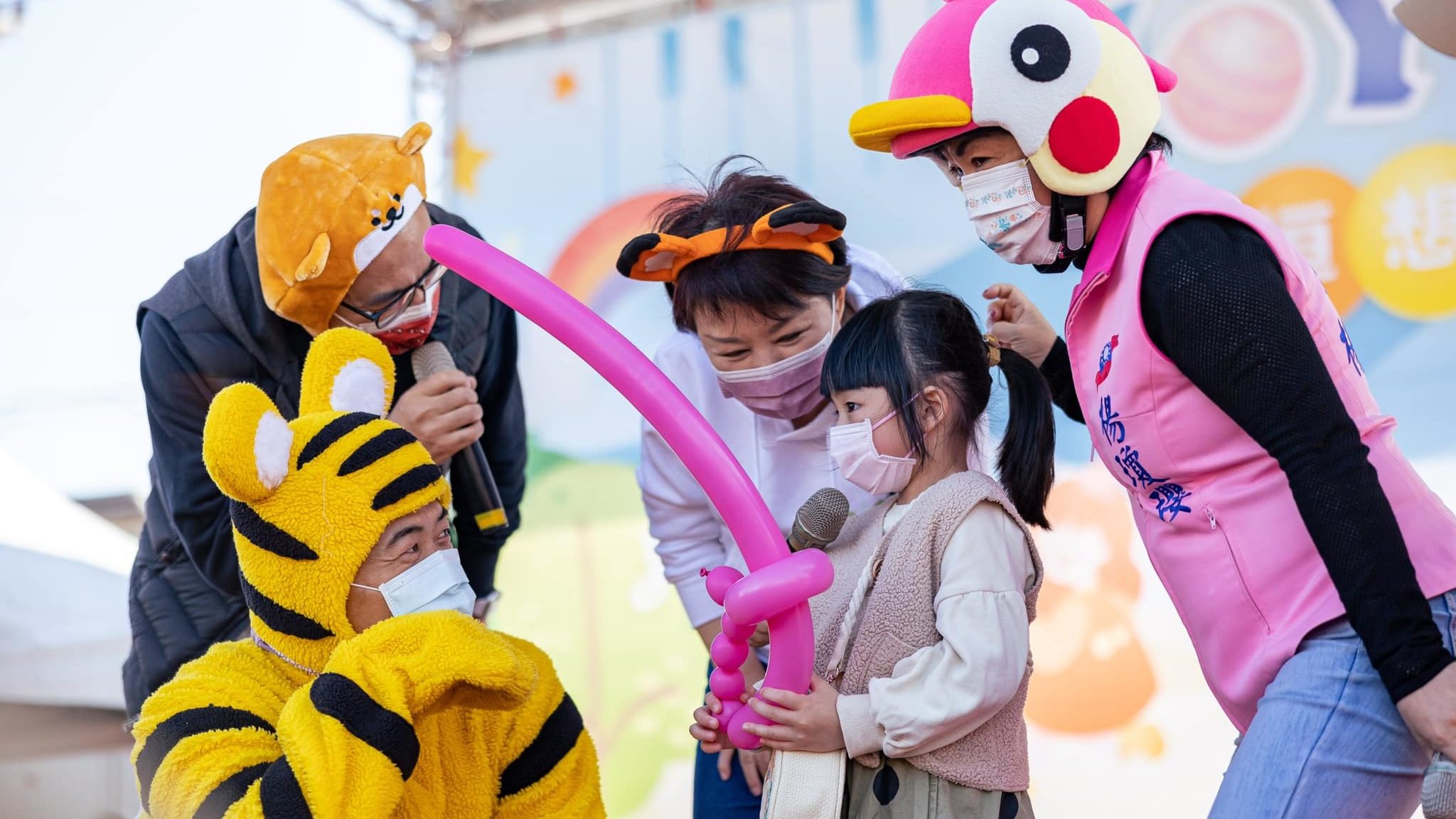Yen Kuan-heng, the Kuomintang’s candidate for a by-election in Taichung, Taiwan’s second most populous city, appeared at a children’s event wearing a tiger costume some weeks ago. What really caught the public’s notice was that Yen seemed to be wearing the costume backward. The public was quick to photoshop the incident, including, perhaps predictably, images adjusted so that the tiger’s tail appeared in place of his private parts. Kuomintang chair Eric Chu appeared at the same event, wearing a helmet resembling a Shiba Inu.
Yen appears to enjoy attending children’s events; a scan of his Facebook reveals hundreds of photos of the candidate awkwardly posing in a balloon hat.
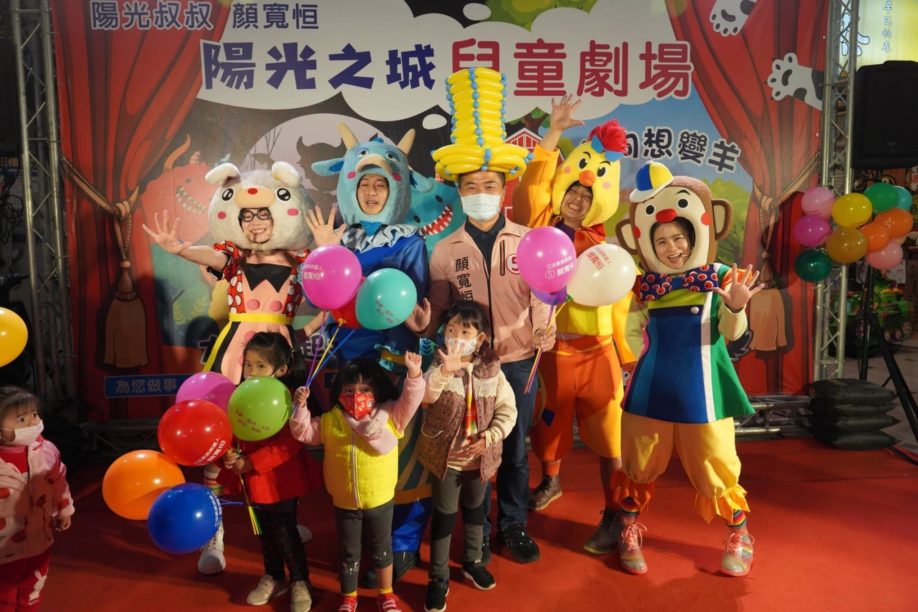
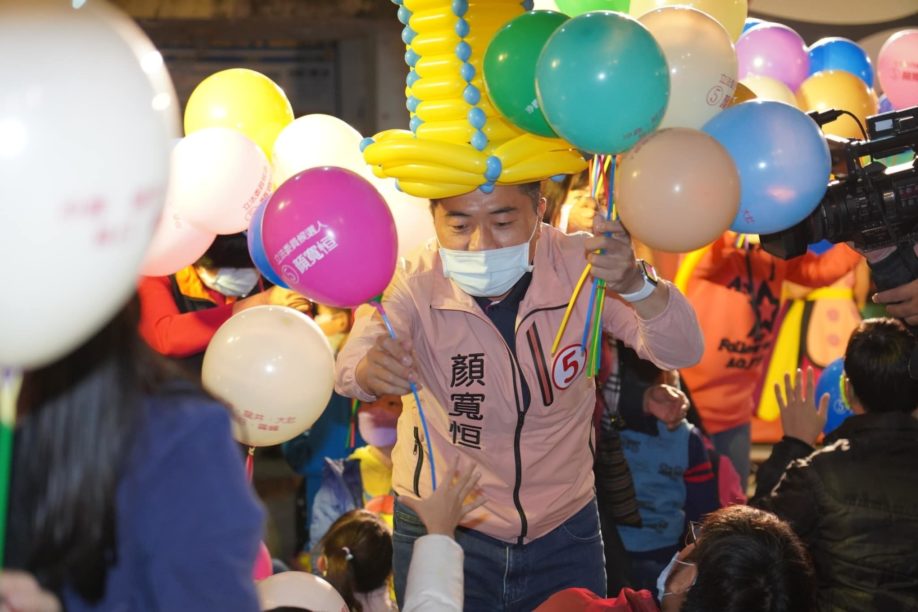
Children cannot vote, of course, but their parents can; Yen was likely aiming to position himself as a family-friendly candidate. This seems to be the incentive for politicians appearing in all manner of dress-up at kids’ events, particularly around Halloween; in past years, I’ve seen candidates dressed up as everything from Thor to Snow White.
Sometimes the tables are turned: viral images from Taiwan last October showed two children dressed up as President Tsai Ing-wen and Minister of Health and Welfare Chen Shih-chung–though not exactly the most colorful of figures, it’s hard to deny that Tsai’s glasses and suit combo have become relatively iconic, like Chen’s salt-and-pepper hair.
Yen is the scion of a political dynasty in Taichung with well-known links to organized crime, so his balloon hat gives off a particularly weird vibe. He became legislator to fill the seat formerly occupied by his father, Yen Ching-piao, who has faced charges of attempted murder, illegal possession of weapons, and corruption.
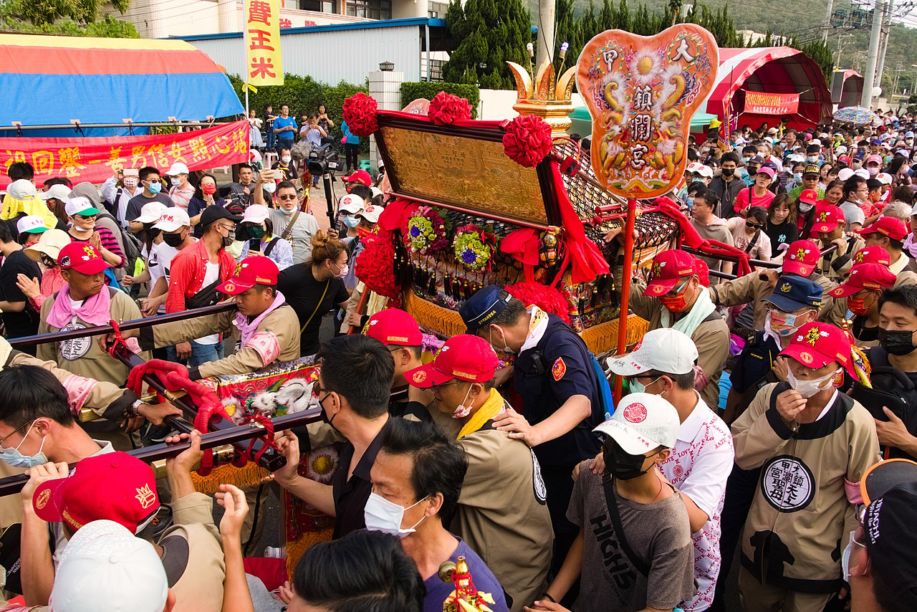
The senior Yen is also the head of the Dajia Jenn Lann Temple, where Taiwan’s largest religious event, the Dajia Mazu pilgrimage, begins. In this way, the Yen family has strong links to not only organized crime, but also to religious activities in Taichung. This may partly explain why the Yen family has been able to hold power in Taichung for so long. Perhaps the children’s dress-up is also aimed at concealing and softening the family’s sketchy image.
Kuomintang chair Eric Chu, on the other hand, has a long history of appearing in strange campaign videos, including a children’s dance video during his 2016 presidential run and a hip hop dance video. (The latter video, as we have observed earlier, provides key evidence that the Kuomintang does not know how to dance.)
Dress-up also cultivates a playful image for a politician–or a youthful one. Taiwan is a place where there are heavy metal singers and cosplayers in the legislature, after all. Politicians dress as everything from K-pop stars to chivalric “knights-errant” from Chinese antiquity.
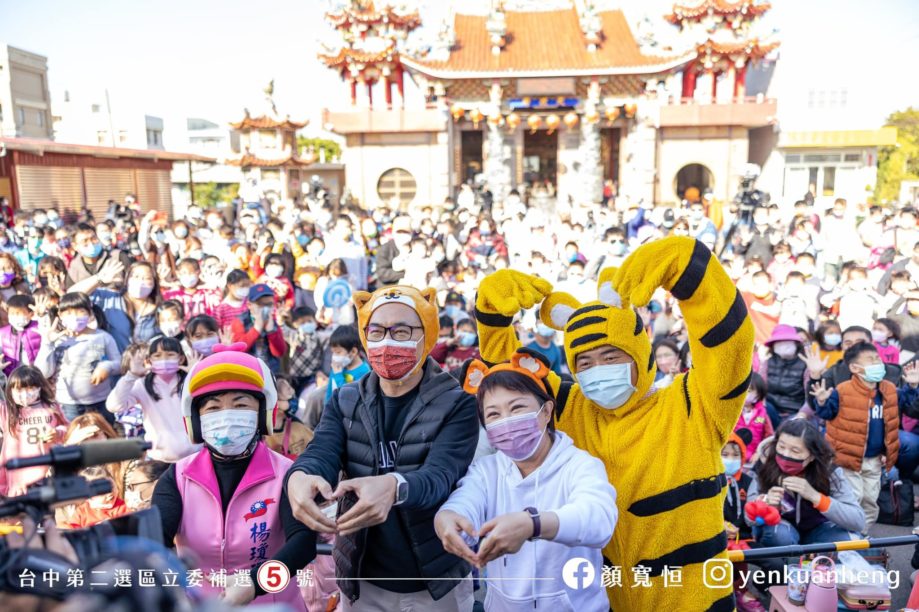
As in other nations, there’s been an increasing blurring of the line between politicians and entertainers in Taiwan. An increasing number of YouTubers that have entered politics recently, including satirical political program host Retina and Taipei city councilor Froggy Chiu—the latter even produced a series documenting the process of establishing a political party.
At the opposite extreme, former DPP city councilor Tung Chung-yen starred in a porno. Having tried to depict himself as progressive in calling for the legalization of sex work, he later came under fire for domestic abuse and for comments lashing out at feminists. Unsurprisingly, this porno appearance hasn’t really panned out for Tung’s image. Maybe he thought that being edgy would win him support among young people.
Though few end up starring in pornos, politicians routinely aim to project an image of youth and vigor. Former president Ma Ying-jeou of the Kuomintang often appeared running in marathons or biking, andhas kept this up after he left the presidency. Other Kuomintang presidents have also tried their hand at this game, but Ma is the most consistent–the man does, in fact, genuinely seem to love exercise. Incidentally, Ma is the Kuomintang’s last successful presidential candidate.
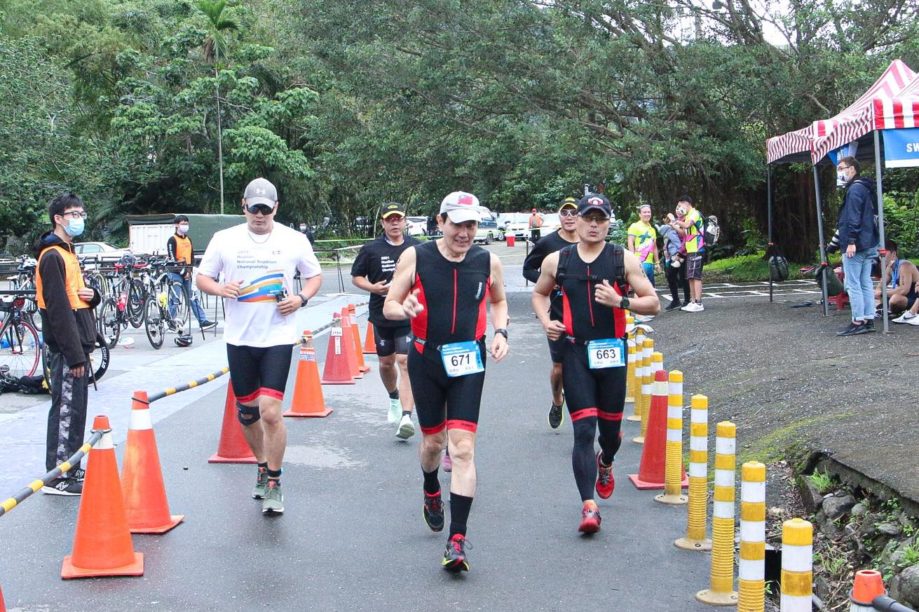
Young politicians such as Freddy Lim–who recently survived a recall attempt– and Lai Pin-yu brought their respective interests in music and cosplay into their political careers, each entering politics after a career of activism. As both are politicians who have a younger, more progressive base, this perhaps is aimed showing that they’re still the same people they were, continuing their personal interests in office rather than trying to aim for a slick and polished political image.
Politics may be seen as a path to power, but to maintain one’s political position may require stooping to all manner of humiliating theatrics. That’s part and parcel of democracy, then, that this kind of public posturing is required to win elections. Even for someone like Yen Kuan-heng–the scion of a powerful gangster family–in today’s Taiwan.
But what many of the politicians dressing up in costumes to play with children on camera don’t get is that this kind of whimsical pose requires authenticity and sincerity–otherwise, voters can sense on some level that it’s phony.
Certainly, Yen’s tiger suit did him little favors at polling in the by-election, resulting in an unexpected defeat for him, and by large margins, to Lin Ching-yi of the DPP. I wonder what it must be like to dress up in such a humiliating manner to try and win votes–and fail. I won’t deny feeling a sense of schadenfreude at that. But it makes sense. Politics is itself a performed, but also lived reality.

